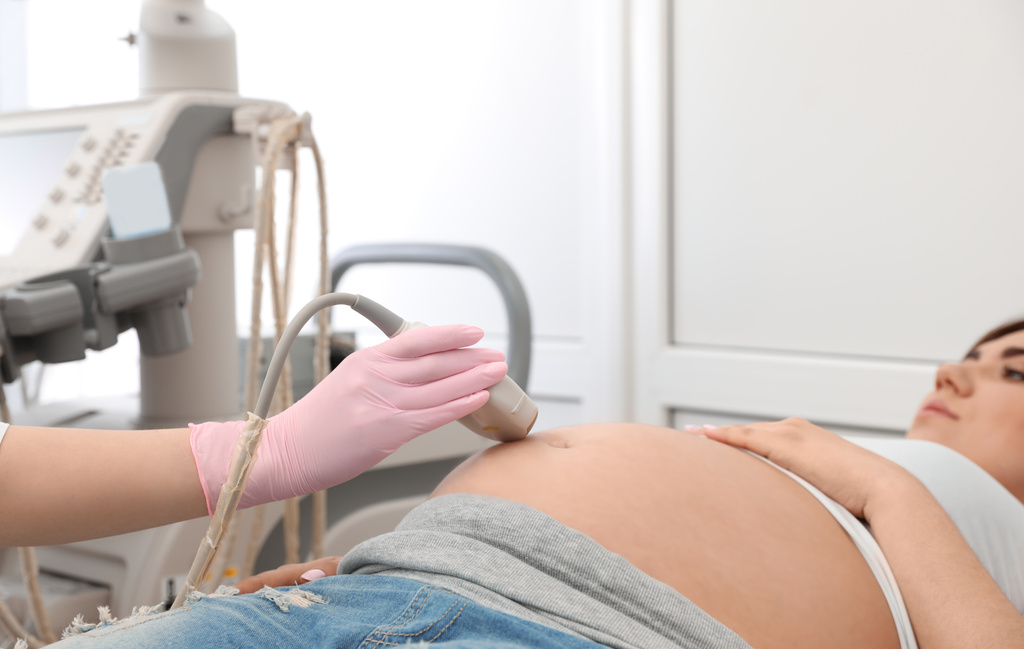Discover if back pain during pregnancy could be a sign of complications with the placenta or amniotic fluid.
Can Back Pain Indicate Issues with the Placenta or Amniotic Fluid?
Ah, the joys of pregnancy! The swollen ankles, the midnight cravings, and of course, the back pain. But wait, could that back pain actually be an indication of something more serious, like issues with the placenta or amniotic fluid? Let’s dive into this topic and find out!

Understanding Back Pain During Pregnancy
Pregnancy is a beautiful journey that comes with its fair share of discomfort, and back pain certainly tops the list for many expectant mothers. But what causes this pesky ache in the first place?
Common Causes of Back Pain in Pregnant Women
Well, your growing baby bump is like a superhero cape, but even superheroes can be a tad heavy. As your baby grows, your center of gravity shifts, putting extra pressure on your back. This added weight can strain the muscles and ligaments in your lower back, leading to discomfort and pain. Additionally, hormonal changes also come into play during pregnancy. These hormones, such as relaxin, loosen the ligaments and joints in your pelvis to prepare your body for childbirth. While this is necessary for the birthing process, it can also contribute to an achy back.
Differentiating Normal Back Pain from Potential Problems
While most back pain during pregnancy is nothing to fret about, it’s essential to know when to keep an eye out for potential issues. Normal back pain during pregnancy is usually mild to moderate and is primarily concentrated in the lower back. It may come and go, depending on your activities and posture. However, if you experience severe or persistent back pain, it’s important to consult your healthcare provider. This could be a sign of a more serious condition, such as a urinary tract infection, preterm labor, or a kidney infection. Other warning signs to watch out for include pain accompanied by fever, chills, or difficulty urinating.
Managing Back Pain During Pregnancy
Fortunately, there are several ways to alleviate and manage back pain during pregnancy. One of the most effective methods is practicing good posture. Maintaining proper alignment can help distribute the weight of your growing belly more evenly and reduce strain on your back. Additionally, regular exercise, such as prenatal yoga or swimming, can strengthen your core muscles and improve flexibility, providing support to your back. Applying heat or cold packs to the affected area, getting regular prenatal massages, and using pregnancy support belts can also provide relief. It’s important to discuss these options with your healthcare provider to ensure they are safe for you and your baby.
Conclusion
Back pain during pregnancy is a common and often expected discomfort. Understanding the causes and differentiating between normal pain and potential problems is crucial for the well-being of both the mother and the baby. By practicing good posture, engaging in regular exercise, and exploring various pain management techniques, expectant mothers can find relief and enjoy their pregnancy journey to the fullest.
The Role of the Placenta and Amniotic Fluid in Pregnancy
Ah, the placenta and amniotic fluid – two superstar players in the pregnancy game that often go unnoticed until something goes wrong. So, what exactly do these wonders of nature do?
Functions of the Placenta
Your trusty placenta is like a TV chef. It cooks up some serious goodness for your growing baby, ensuring they receive all the vital nutrients they need to thrive. But let’s dive deeper into the incredible functions of this remarkable organ.
First and foremost, the placenta acts as a lifeline between you and your baby. It is responsible for delivering oxygen and nutrients from your bloodstream to your little one. This means that every bite of food you eat, every breath you take, is ultimately benefiting your baby through the placenta.
But that’s not all! The placenta also plays a crucial role in removing waste products from your baby’s blood. Just like a diligent housekeeper, it filters out any harmful substances, ensuring that your baby’s environment remains clean and safe.
Moreover, the placenta produces essential hormones that are vital for a healthy pregnancy. These hormones help regulate your body’s changes during pregnancy, support the growth and development of your baby, and even prepare your body for breastfeeding.
Importance of Amniotic Fluid
Think of amniotic fluid as your baby’s private swimming pool. It provides a cushy and protective environment, allowing them to move and breathe freely. But let’s take a closer look at the fascinating role of amniotic fluid in nurturing your little one.
Firstly, amniotic fluid acts as a shock absorber, cushioning your baby against any external pressure or impact. It creates a barrier between your baby and the outside world, shielding them from bumps and jolts.
Furthermore, amniotic fluid allows your baby to practice their movements and develop their muscles. Just like a gymnast in training, your baby can stretch, kick, and even somersault in this fluid-filled haven. This not only helps in their physical development but also aids in the growth of their bones and joints.
Additionally, amniotic fluid plays a vital role in maintaining a stable temperature for your baby. It acts as a natural thermostat, keeping your little one warm and cozy throughout their time in the womb.
Lastly, amniotic fluid is not just a passive liquid surrounding your baby; it is a dynamic substance that changes as your pregnancy progresses. It is constantly replenishing itself, ensuring that your baby always has a fresh and clean environment to thrive in.
Linking Back Pain to Placental Issues
Back pain can sometimes be a red flag, waving in the direction of potential placental problems. So, how can you tell if your back pain is trying to send you an SOS message?
Symptoms of Placental Abruption
If you experience sharp, intense back pain that just won’t quit, along with vaginal bleeding, it’s time to get in touch with your healthcare provider. Placental abruption, where the placenta starts to detach from the uterine wall prematurely, could be the culprit.
Placental abruption is a serious condition that occurs when the placenta separates from the uterine wall before delivery. This can lead to severe back pain as the placenta is a vital organ that provides oxygen and nutrients to the developing fetus. The pain may be accompanied by vaginal bleeding, which is a clear indication that immediate medical attention is required.
How Placenta Previa Can Cause Back Pain
Placenta previa, where the placenta partially or fully covers the cervix, can lead to persistent back pain. If you notice pain accompanied by bright red vaginal bleeding, it’s crucial to seek medical attention immediately.
Placenta previa is a condition where the placenta implants low in the uterus and partially or completely covers the cervix. This positioning can cause back pain due to the pressure exerted on the lower back. The pain may be constant or intermittent, and it may worsen with certain movements or activities. Along with back pain, bright red vaginal bleeding is a characteristic symptom of placenta previa. This combination of symptoms requires urgent medical evaluation to ensure the well-being of both the mother and the baby.
It is important to note that while back pain can be a sign of placental issues, it can also have various other causes unrelated to pregnancy. Therefore, it is essential to consult with a healthcare provider for a proper diagnosis and appropriate management.
Amniotic Fluid Problems and Back Pain
Let’s not forget about our VIP, amniotic fluid. When things go awry in this department, back pain may very well make a prominent appearance.
Amniotic fluid, also known as the “baby’s water,” plays a crucial role in the development and protection of the unborn baby. It surrounds the fetus, providing a cushion against external pressure and allowing for optimal growth and movement.
Understanding Oligohydramnios and Polyhydramnios
Oligohydramnios, or low levels of amniotic fluid, can cause back pain in some cases. This condition may occur due to various factors, such as a leak in the amniotic sac, problems with the placenta, or certain medical conditions affecting the mother or baby. When the amniotic fluid is insufficient, it can lead to discomfort and strain on the back.
On the other hand, if you’re dealing with polyhydramnios, where there’s excess amniotic fluid, it can also lead to discomfort. The increased volume of fluid can put additional pressure on the back, causing pain and discomfort for the expectant mother.
How Amniotic Fluid Disorders Can Lead to Back Pain
Amniotic fluid disorders can sometimes result in abnormal amounts of fluid, which can then cause back pain. These disorders can include conditions like oligohydramnios and polyhydramnios, as mentioned earlier. However, there are other potential causes of amniotic fluid disorders, such as infections, genetic abnormalities, or complications with the baby’s kidneys or urinary tract.
If you’re experiencing severe back pain accompanied by swelling, rapid weight gain, or decreased fetal movements, it is essential not to ignore these symptoms. These could be signs of an underlying amniotic fluid problem that requires medical attention. It’s crucial to reach out to your doctor promptly to discuss your symptoms and get the necessary evaluation and treatment.
During your medical evaluation, your doctor may perform various tests to assess the amniotic fluid levels, such as ultrasound examinations or amniocentesis. These diagnostic procedures can provide valuable information about the condition of the amniotic fluid and help determine the appropriate course of action.
In some cases, treatment for amniotic fluid problems may involve interventions to increase or decrease the fluid levels, depending on the specific condition. This could include measures such as increasing fluid intake, bed rest, medications, or even surgical interventions if necessary.
Remember, your doctor is your best resource for understanding and managing any amniotic fluid problems that may be contributing to your back pain. Open communication and prompt medical attention are essential for ensuring the well-being of both you and your baby.

When to Seek Medical Attention
Knowing when to seek medical attention is crucial during pregnancy. After all, it’s better to be safe than sorry!
Warning Signs and Symptoms to Watch Out For
If your back pain becomes unbearable or is accompanied by other concerning symptoms like fever, vomiting, or a sudden decrease in fetal movement, it’s time to give your healthcare provider a ring. They have superhero powers when it comes to keeping you and your baby healthy!
The Importance of Regular Check-ups During Pregnancy
Lastly, never underestimate the importance of regular check-ups during pregnancy. Your healthcare provider can monitor your overall health and ensure everything is progressing smoothly. Plus, they can provide much-needed reassurance and advice when those pregnancy aches and pains start getting the best of you.
So, the next time that back pain pays you a visit during pregnancy, don’t panic just yet. While it can be uncomfortable, in most cases, it’s a normal part of the nine-month adventure. But, if your back pain starts throwing up warning signs or does a funky dance, reach out to your doctor. They’ll help ease your worries and ensure your placenta and amniotic fluid are doing their jobs like true superheroes!



